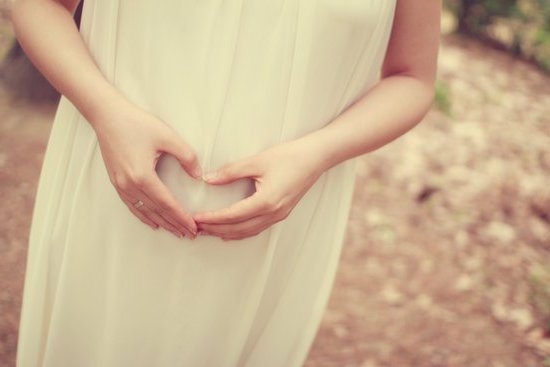Does early pregnancy cause diarrhea? Many women may wonder about this common symptom during the early stages of pregnancy. With the excitement of expecting a baby comes a multitude of changes in the body, including various symptoms that can be experienced. From morning sickness to fatigue, hormonal fluctuations can lead to gastrointestinal issues like diarrhea for some pregnant women.
During early pregnancy, hormonal changes play a significant role in how the body functions. The surge in hormones such as progesterone can affect the digestive system, slowing down the movement of food through the intestines and potentially leading to diarrhea. This disruption in normal bowel function is often temporary but can be bothersome for expectant mothers.
While diarrhea is a common symptom in early pregnancy, it is essential to differentiate between normal bowel changes and more concerning symptoms that may require medical attention. Understanding the potential causes of diarrhea during this time can help women manage their symptoms effectively and know when to seek help from healthcare providers.
In the following sections, we will delve deeper into what triggers diarrhea in early pregnancy, provide tips for managing it, and discuss when it is necessary to consult a doctor for further evaluation.
Understanding the Hormonal Changes in Early Pregnancy
During early pregnancy, a woman’s body undergoes significant hormonal changes to support the developing baby. One of the key hormones involved in pregnancy is progesterone, which plays a crucial role in maintaining a healthy uterus and supporting fetal growth. However, elevated levels of progesterone can also have an impact on the digestive system, leading to symptoms like bloating, constipation, and yes, even diarrhea.
Progesterone and Digestive System
Progesterone relaxes the muscles throughout the body, including the ones in the gastrointestinal tract. This relaxation can slow down digestion and lead to constipation for some women. On the other hand, it can also cause the muscles in the intestines to contract more frequently and forcefully, resulting in diarrhea for others. This fluctuation in bowel movements is entirely normal during early pregnancy due to hormonal changes.
Impact of Estrogen
Aside from progesterone, estrogen levels also rise significantly during early pregnancy. Estrogen has been known to contribute to increased blood flow to various organs including the intestines. This heightened blood flow can further stimulate bowel movements and potentially lead to episodes of diarrhea for pregnant women. The combination of progesterone and estrogen working together can result in various digestive issues experienced during early pregnancy like diarrhea.
The Possible Causes of Diarrhea in Early Pregnancy
Hormonal Changes
One of the primary causes of diarrhea in early pregnancy is the hormonal changes that occur in the body. The surge of hormones, such as progesterone, can affect the gastrointestinal system, leading to increased bowel movements and looser stools. Additionally, these hormonal changes can relax the muscles in the digestive tract, causing food to pass through more quickly and potentially resulting in diarrhea.
Stress and Anxiety
Stress and anxiety are also common triggers for diarrhea during early pregnancy. The emotional rollercoaster that often accompanies the realization of being pregnant can have a direct impact on gut health. Stress can disrupt the balance of bacteria in the gut, leading to an upset stomach and diarrhea. It is essential for pregnant women to find ways to manage their stress levels to help alleviate this symptom.
Dietary Changes
Changes in dietary habits and preferences during early pregnancy can also contribute to diarrhea. For some women, cravings or aversions to certain foods may result in an unbalanced diet that can lead to digestive issues. Additionally, sudden increases in fiber intake from prenatal vitamins or a shift towards more fruits and vegetables rich in fiber can also trigger diarrhea. It is crucial for pregnant women to maintain a healthy and balanced diet to help alleviate gastrointestinal symptoms.
Differentiating Between Normal Bowel Changes and Concerning Symptoms
During early pregnancy, many women may experience changes in their bowel movements, including diarrhea. It is important to understand the difference between normal bowel changes and concerning symptoms to ensure the health and well-being of both the mother and the growing fetus.
To help differentiate between normal bowel changes and concerning symptoms during early pregnancy, consider the following factors:
- Bowel frequency: Normal bowel changes during pregnancy may include an increase in frequency due to hormonal fluctuations. However, frequent diarrhea that disrupts daily activities or is accompanied by other symptoms like fever or dehydration could be a cause for concern.
- Consistency of stool: Loose stools can be a common symptom in early pregnancy due to hormonal changes. Typically, these episodes are short-lived and not indicative of a serious problem. On the other hand, persistent watery diarrhea could be a sign of infection or other gastrointestinal issues.
- Associated symptoms: Diarrhea accompanied by severe abdominal pain, blood in stools, vomiting, or dizziness should be taken seriously and prompt medical attention should be sought. These symptoms could indicate underlying health issues that need immediate treatment.
It is essential for pregnant women experiencing diarrhea to monitor their symptoms closely and communicate any concerns with their healthcare provider. Keeping track of bowel movements, associated symptoms, and any triggers can help healthcare professionals assess the severity of the situation and provide appropriate guidance for managing diarrhea during early pregnancy.
Overall, while experiencing diarrhea in early pregnancy can be uncomfortable, it is often a normal part of the hormonal and physiological changes taking place in the body. By staying informed about what constitutes normal bowel changes versus concerning symptoms and seeking medical advice when necessary, pregnant women can navigate this common symptom with confidence and ensure a healthy pregnancy journey.
Tips for Managing Diarrhea During Early Pregnancy
During early pregnancy, many women experience a range of symptoms, including nausea, fatigue, and yes, diarrhea. While it may not be the most glamorous topic to discuss, diarrhea is a common occurrence in expecting mothers. Understanding how to manage this uncomfortable symptom can help make the early stages of pregnancy a bit more bearable.
To help you navigate through this challenging time, here are some tips for managing diarrhea during early pregnancy:
- Stay hydrated: Diarrhea can quickly deplete your body of fluids and electrolytes. Make sure to drink plenty of water throughout the day to prevent dehydration.
- Eat bland foods: Stick to easily digestible foods like bananas, rice, applesauce, and toast (BRAT diet). Avoid spicy or greasy foods that could further irritate your stomach.
- Avoid triggering foods: Pay attention to what foods may be exacerbating your symptoms and try to avoid them. Common culprits include dairy products, caffeine, and artificial sweeteners.
It is essential to remember that while experiencing diarrhea in early pregnancy can be unsettling, it is usually normal. The hormonal changes in your body are likely the cause of these gastrointestinal issues. However, if you find that your symptoms are severe or persistent, it is crucial to consult with your healthcare provider.
Whether you’re reaching for the ginger tea or trying out some new dietary adjustments, finding ways to manage diarrhea during early pregnancy can provide some relief. Remember that self-care is essential during this time as you nurture yourself and your growing baby.
When to Seek Medical Help for Pregnancy-Related Diarrhea
During early pregnancy, experiencing occasional bouts of diarrhea may not always be a cause for concern. However, if you find yourself dealing with persistent or severe diarrhea, it is essential to know when to seek medical help. Diarrhea, especially when accompanied by other symptoms like dehydration, fever, or abdominal pain, can potentially indicate an underlying issue that needs to be addressed by a healthcare provider.
One key factor to consider when deciding whether to seek medical help for pregnancy-related diarrhea is the duration of the symptoms. If you have been experiencing diarrhea for more than two days and it shows no signs of improvement, it is recommended to consult your healthcare practitioner. Additionally, if you notice blood or mucus in your stool, this could be a sign of a more serious condition and requires immediate medical attention.
Another important aspect to consider is the frequency and severity of the diarrhea episodes. Frequent and severe bouts of diarrhea can lead to dehydration, which can be dangerous during pregnancy. If you are unable to keep fluids down or if you feel dizzy or lightheaded, it is crucial to contact your healthcare provider right away. They can provide guidance on how to manage dehydration and determine the cause of your diarrhea.
Other Common Gastrointestinal Issues During Early Pregnancy
In addition to diarrhea, pregnant women may experience other common gastrointestinal issues during early pregnancy. These can include nausea, vomiting, constipation, and heartburn. Hormonal changes, increased progesterone levels, and the expanding uterus can all contribute to these symptoms. Nausea and vomiting, often referred to as morning sickness, are among the most prevalent gastrointestinal issues during the first trimester.
Constipation is also a common complaint among pregnant women, which can be attributed to hormonal changes that slow down the digestive process. This can lead to infrequent bowel movements and discomfort. On the other hand, heartburn is caused by gastric acid refluxing into the esophagus due to relaxed muscles in the digestive tract.
It is important for expectant mothers experiencing these gastrointestinal issues to practice self-care measures such as staying hydrated, eating small, frequent meals, and avoiding triggers that worsen symptoms. Maintaining a healthy diet rich in fiber and staying active can also help alleviate some of these discomforts. If symptoms persist or become severe, it is advisable to consult with a healthcare provider for further evaluation and management.
| Gastrointestinal Issue | Cause |
|---|---|
| Nausea and Vomiting | Hormonal changes and increased progesterone levels |
| Constipation | Hormonal changes slowing down digestion processes |
| Heartburn | Gastric acid reflux due to relaxed muscles in the digestive tract |
Personal Anecdotes and Experiences From Women Who Have Dealt With Diarrhea in Early Pregnancy
During early pregnancy, hormonal changes can lead to a variety of symptoms, including nausea, fatigue, mood swings, and yes, even diarrhea. The question of “Does early pregnancy cause diarrhea?” is a common one among expecting mothers experiencing this unsettling symptom. Many women may find themselves running to the bathroom more frequently than usual during the first trimester, wondering if it is just a passing phase or something more concerning.
For some expectant mothers, the increased levels of hormones such as progesterone can have an effect on the digestive system, slowing down bowel movements and potentially causing diarrhea. Additionally, anxiety and stress about being pregnant or coping with the physical changes can also contribute to gastrointestinal issues. However, it is essential to differentiate between normal bowel changes due to pregnancy and symptoms that may indicate a more serious underlying issue.
When experiencing diarrhea in early pregnancy, it is crucial to stay hydrated by drinking plenty of fluids such as water and electrolyte-rich beverages like sports drinks or coconut water. Eating small, frequent meals that are easy on the stomach can also help manage symptoms.
However, if diarrhea persists for more than a day or is accompanied by other concerning symptoms like fever or dehydration, it is important to seek medical help promptly to rule out any potential complications for both the mother and baby.
Conclusion
In conclusion, experiencing diarrhea during early pregnancy is a common symptom that can be attributed to hormonal changes, increased progesterone levels, dietary changes, or stress. While it may be uncomfortable and inconvenient, it is typically not a cause for major concern. Most cases of diarrhea in early pregnancy can be managed at home with simple remedies such as staying hydrated, eating a balanced diet, and getting enough rest.
It is important for pregnant women to differentiate between normal bowel changes and concerning symptoms that may indicate a more serious issue. If diarrhea is persistent, severe, accompanied by other symptoms like fever or abdominal pain, or if it leads to dehydration, seeking medical help is recommended. Healthcare providers can offer guidance on managing symptoms and ensure the well-being of both the mother and the baby.
Overall, while dealing with gastrointestinal issues like diarrhea in early pregnancy can be challenging, it is important for women to remember that they are not alone in their experiences. Many women have navigated through similar symptoms during their pregnancies and have successfully reached the end with healthy babies. By being knowledgeable about common symptoms and seeking support when needed, pregnant women can feel reassured throughout this journey.
Frequently Asked Questions
Is Diarrhea an Early Pregnancy Symptom?
Diarrhea is not commonly considered an early symptom of pregnancy, but some women may experience it. However, it’s essential to consider other factors as well, such as diet changes or stomach viruses before attributing diarrhea solely to pregnancy.
What Are Early Signs of Pregnancy?
Early signs of pregnancy can vary from woman to woman, but some common ones include missed periods, fatigue, nausea or morning sickness, breast tenderness, frequent urination, and mood swings. It’s crucial to take a pregnancy test for confirmation if these symptoms arise.
Can Pregnancy Hormones Cause Diarrhea?
Pregnancy hormones can indeed cause changes in the gastrointestinal tract that may lead to diarrhea in some women. The hormonal fluctuations during early pregnancy can affect digestion and potentially result in loose stools. If diarrhea persists or is severe, it’s advisable to consult a healthcare provider for further evaluation and guidance.

Welcome to my fertility blog. This is a space where I will be sharing my experiences as I navigate through the world of fertility treatments, as well as provide information and resources about fertility and pregnancy.





